- Home
- Birth Marriage Death
- Death in Tenerife
Dealing With Death In Tenerife - advice and information
that I'm associated with.
Learn more
dealing with a death in tenerife
This is an unfortunate subject, I know and, hopefully, you'll never have to use the help and information presented here. However, if you have found this page, you'll know it's here, waiting for you, should the unthinkable occur.
Initially, there are two broad divisions that can be made in this situation: death by natural causes and death due to accident or violent crime.
Death By Natural Causes
This situation can be further subdivided into a death whilst in a hospital and a death elsewhere, such as the deceased's home.
The former situation is, by far, the most straighforward, as the hospital authorities will then deal with all the necessary action and paperwork, including the death certificate.
If the person dies at home, the Local Police must first be informed. There is a general emergency number: 112. They have multilingual staff, so, when they answer, just say "English please". There is also a general number for the police in Tenerife: 091. If you want to call directly your local policia municipal station, a full list of numbers for all of them on the island can be found at www.tenerife-abc.com/dir/policia-local.htm .
Also essential at this time is the summoning of a doctor. If the deceased has been receiving treatment from a Tenerife doctor, then it is obviously he or she you should contact. If the death is sudden and the deceased hasn't been registered with a doctor, you can find a list of English, or English speaking, doctors here. The doctor has to confirm the death and is also responsible for the issuing of the death certificate. He/she will usually deal with informing the police, so it may be a good idea to contact the doctor first.
Once the police have been informed, they will notify an official called the jurez forense. This translates as "forensic judge" and this person needs to visit the home of the deceased (or any other location where the death may have occurred) to authorise removal of the body. He also decides whether or not the death was suspicious in any way. If so, an autopsy will be necessary. If this is not the case, then Spanish custom decrees that there will be no post mortem and the body will be removed by a funeral director and buried within 24-48 hours.
Choosing A Funeral Director
Unless you stipulate otherwise, the authorities will appoint the local funeral director to deal with removal and subsequent burial of the deceased. You may wish to appoint your own choice of funeral director and the attending doctor will be happy to help you with this.
To aid you, a list of Tenerife funeral directors (called, in Spanish, Pompas Funebres) is available in Spanish Yellow Pages, which you can access here.
Dealing With The Funeral Director
First and foremost, it will be to your distinct advantage to use a funeral director that speaks English. You will need to provide both the deceased's passport and your own. It is worth checking if they will accept photocopies. They will also require the first names of the deceased's mother and father.
There are several points you need to consider before speaking to the funeral director - some which you may not think of in the aftermath of the bereavement.
- The wishes of the deceased (if known) regarding his/her funeral arrangements. The funeral director will have to comply.
- Whether the deceased had funeral insurance.
- How the deceased will be dressed.
- Whether any jewellery will be removed or not.
- Is the body to be available for viewing before the funeral and for what length of time.
- Will it be burial, or cremation.
- Would you (and/or the deceased) wish the body to be transported back to its own country for burial.
Despite a funeral director saying he speaks English, it may be wise to take a fluent Spanish speaker with you (if you don't speak the language fluently yourself), so that everything is completely understood between you and the funeral director.
The important thing is not to be rushed into anything and make sure you are told the full cost of all services provided.
Burial in Tenerife
Interrment (i.e. burial underground) is quite uncommon in Tenerife and Spain generally. Instead, the coffin is placed in a nicho, or "niche", which is a recess in a wall. Occupation of these nichos incur a fee which can vary according to the position in the wall. The centre position is most expensive. The higher up the wall you go, the cheaper it gets. These nichos are usually "rented" for a period of five years, after which the fee must be paid again. Failure to renew the "rent" will result in the coffin being removed and the bones placed in a common ossuary.
Cremation
There are two crematoria in Tenerife, both in the north of the island. The better one to try, as they are used to dealing with expats, is a company called Servisa. They have an office in Guaza, telephone number 922 169157. Their website is www.servisa.es (in Spanish). Click on "donde estamos" in the top navigation menu, then to the right of the map of Spain, select, from the drop-down list, Santa Cruz de Tenerife. There you'll find details of all their offices and crematoria on the island. They will also deal with obtaining the civil death certificate.
Scattering Ashes in Tenerife
It is illegal to scatter ashes on land or at sea without obtaining a special licence. Unfortunately, it seems a bit of a mystery how to go about getting one! Fortunately, though, there is an area in the cemetery of San Luis in La Laguna that has been turned into a "Garden of Ashes", where it is allowed, after you fill in a form you obtain at the cemetery. Thankfully, there is no fee for this.
Transporting a Body Back To Its Home Country For Burial
This situation includes either the body or the ashes of the body after cremation. The latter is, by far, the simplest and cheapest.
Human ashes in an urn can be transported on an aircraft without too much bureaucracy being involved. Firstly, you need to inform the funeral director of your intention and he will present you with the ashes in a container that is able to be scanned by airport security. This may be plastic or wood. The ashes can then be transfered to a proper, metal container on your arrival in your home country. For the flight, it is advisable to make absolutely sure that the urn is well sealed. If it is checked into the cargo hold, the last thing you want is for it to be knocked around during flight turbulence and some of the ashes spilling out.
If the urn is small enough, it is far more advantageous to take it as carry-on hand luggage. The check-in staff should be made aware that you are carrying human remains and they will, in turn, inform the agent at the departure gate. You should have the death certificate to show them, plus any other documentation provided by the funeral director.
Transportation of the body for burial in another country is a far more expensive matter. Again, the funeral director will organise it all for you, with regard to embalming the body (essential to avoid decomposition) and providing a sealed, lead-lined container, as is the rule in these situations.
You will have to arrange a flight for this container and, once choosing your airline, you need to call their cargo department. Here is a list of several airlines' cargo departments, with contact details:
- BMI: +44 844 2430600
- Britannia: +44 203 432 7810
- Finnair: +358 9 818 501
- Iberia (Tenerife South Airport): 922 635662
- Spanair: +34 902 117680
- Thomas Cook: +44 161 498 4731
Paperwork
It has already been mentioned that the attending doctor will issue the medical death certificate. You will also need a civil death certificate. This has to be applied for as soon as possible, no more than 24 hours after the death. Usually, the funeral director will do this for you, but, if you do it yourself, you need to either go in person or apply by post.
In the south of the island, there are two locations that you can go to, both in Los Cristianos.
- Jugado (Registro Civil)
Avenida Juan Carlos
Telephone: 922 787860 - Oficina Registro Civil
Avenida Chayofita
Telephone: 922 747300
You will need to take the medical death certificate with you and provide the following information:
- Your full name, plus your passport or NIE number
- Full name of the deceased
- Names of the deceased's parents
- Marital status of deceased
- Nationality of deceased
- Date and place of birth of deceased
- Passport or NIE number of deceased
- Last known address of deceased
- Date, time and place of death
The certificate can be a normal Spanish one or an international one and will normally be ready for collection within two to three days. Copies of this certificate will be required to be shown to many different official organisations, so be sure to order sufficient numbers.
Who To Inform
If you've suffered a bereavement before, you'll know how many varied organisations need to be notified. With the death being in Tenerife, there are a few extra ones as well. Here's a list of authorities that need to see the death certificate, if the deceased was of UK nationality:
- The Registro Civil in Madrid
- Probate Office - in case of wills and inheritance
- Department of Works and Pensions - to terminate pension payments
- INSS (the Spanish Social Security Office) - only if deceased was resident in Spain and either worked there or received a state pension
- Inland Revenue - either UK or Spanish, depending where tax was paid
- Any banks or building societies (in the UK or Spain) where the deceased held accounts
- Any insurance companies who have issued policies to the deceased
- Any other utility company that may hold an account for the deceased that needs terminating
Don't forget to keep a copy for yourself, too.
The British Consulate?
You may think that you need to inform the British Consulate in Santa Cruz of the death, but this is not compulsory. It is, however, advisable, as this will result in a UK death certificate becoming available and the death will be recorded at the UK General Register Office.
dealing with a death in tenerife
DEATH FROM UNNATURAL CAUSES
This can include sudden death from such things as a heart attack, or being in an accident, or the victim of a violent crime and is a whole different scenario.
If the forensic judge thinks the death is suspicious in any way, he will order a post mortem. You may still go ahead and register the death before this has been completed.
For a death as a result of a criminal act, the police will, naturally, be involved. They will carry out a full investigation, the findings of which will be presented to a judicial court and there may be a prosecution following. All these procedures can delay the release of the body for burial or cremation (or taking back to the deceased's home country).
Post Mortems
Any suspicious death will automatically result in a post mortem, or autopsy. I know it will be distressing, knowing that your loved one will have to go through this, but, believe me, it gets worse.
The autopsy will be carried out by forensic doctors appointed by the judicial court. They have the right to remove organs from the body for testing - without the permission of the next of kin. In fact, next of kin are not even informed if this happens.
The body will be released before these tests have been completed - so, possibly minus some organs. These organs, after testing, are placed in storage for up to a month, after which they will be destroyed.
If you want your loved one's organs back, you have to apply for a court order. Should you have taken the body back to the UK by this time, a local Coroner can arrange this for you.
Post Mortem Results
It appears that the Spanish authorities are very reluctant to reveal results of autopsies. They will not release any details to next of kin or even the British Consulate. Once again, you have to resort to a lawyer to request this and the whole procedure will take several months to elicit a response.
Death Certificates
When the death has unnatural causes, the certificate will not usually state what this cause was. If you've taken your loved one back to the UK, say, the Coroner there will need to establish this cause of death and, believe me, it's not easy for him to get any information.
As I said, the certificate will tell him nothing and the Spanish authorities will drag their feet in providing any information.
Thus, another post mortem is quite often carried out on UK soil.
Not the best scenario, all this, is it?
dealing with a death in tenerife
All institutions and people, whether it be undertakers, town councils (ayuntamientos), doctors, hospitals, police or consulates, will do their absolute utmost to help you in a conscientious and sympathetic manner. |
return to birth marriage death

  follow the TIC on X 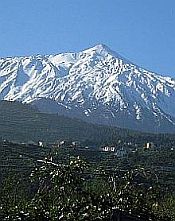 your ad here! Become a site sponsor and have your ad appear on every page. More info.  web business! 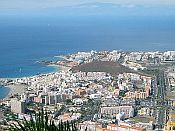 Accommodation 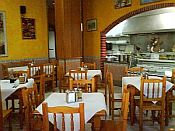 Eating Out 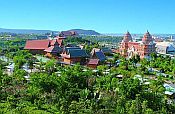 Attractions  Villas 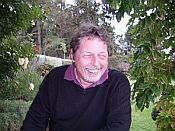 Tell me all your Tenerife experiences |




Facebook Comments
Have your say about what you just read! Leave me a comment in the box below.